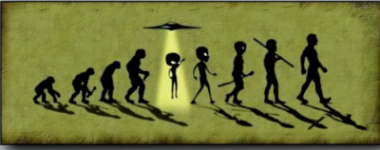Speakpigeon
Contributor
- Joined
- Feb 4, 2009
- Messages
- 6,317
- Location
- Paris, France, EU
- Basic Beliefs
- Rationality (i.e. facts + logic), Scepticism (not just about God but also everything beyond my subjective experience)
There is no evidence that the passenger pigeon is still evolving. I think we have discovered the way to stop species from evolving.
Species don't "stop evolving", they just don't change. And they don't change because there's no environmental pressure for them to change. Not a problem at all.There's no fundamental difference between a species that doesn't change and one that is evolving. Both are broadly going to be well adapted to their actual environment.
Evolution is not good in itself. It's just a consequence of a changed environment whereby a species is no longer sufficiently well adapted to the new environment for most individuals of the species to survive and reproduce. Only those individuals best adapted will survive to engender the new species. Even a changing world isn't necessarily a problem for a species that doesn't change. What matters is the environment that's relevant to the survival of the species.
EB

